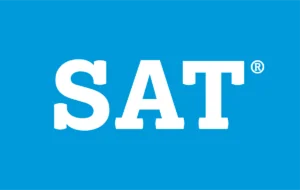
Recently, the Record brought attention to the increasing incidents of hacking in the British education system. According to the report, hackers have stolen national exam papers and sold them online, sparking fears of increased cheating among students.

✅ AI Essay Writer ✅ AI Detector ✅ Plagchecker ✅ Paraphraser
✅ Summarizer ✅ Citation Generator
Key Points
- Police in Britain are investigating incidents where hackers have stolen school-leaver national exam papers and sold them online.
- This rarely seen data breach is causing concern for educational institutions as it impacts the integrity of the exams.
- If caught, students who purchase these stolen exam papers could face severe consequences including disqualification and exam re-sits bans.
Breeding Ground for New-Age Cheating
The exam season in England and Wales typically sees a surge in attempts to sell fake exam papers online. However, the recent events involving exam boards OCR and Pearson Edexcel reflect a more sophisticated level of cheating. Hackers reportedly accessed a school’s internal email system to request papers from the exam boards.
“Two examination boards have had exam papers extracted from their systems and sold online,”
spokesperson for Cambridgeshire Constabulary.
Exam Integrity Under Threat
Additional cyber incidents have also affected AQA, the largest exam board in Britain. These breaches threaten the integrity of exams and pose challenges for ensuring a fair testing environment for all students.
“Exam boards have reported a small number of contained incidents of alleged fraud to the police,”
a representative from the Joint Council for Qualifications (JCQ).
The JCQ spokesperson warned of severe consequences for students found to have purchased the stolen exams, including potential disqualification and a ban from re-sitting the exams for a set period. This could also impact their university placements.
Conclusion
These events highlight the evolving landscape of cheating in the digital era. While the investigations are ongoing, the incidents call attention to the need for robust cybersecurity measures in education systems worldwide. It also underscores the importance of instilling academic integrity among students, given the ease of access to unauthorized resources in the digital age.
Is Technology to Blame? Examining the Impact of Digital Tools on Cheating
In light of recent events, it’s worth questioning the role technology plays in fostering academic dishonesty. With the rise of digital tools and resources, the methods of cheating have evolved beyond traditional means.
While digital advancements have undeniably enhanced educational processes, they have also paved the way for new avenues of dishonesty. In this age of information accessibility, the lines between legitimate resource utilization and academic malpractice have blurred.
Ensuring Digital Integrity
The response to these technological challenges must be multifaceted. Implementing robust cybersecurity measures is one aspect. But it’s equally crucial to foster an environment of digital integrity where students understand the importance of honest academic practices. Moreover, educating students about the consequences of academic dishonesty, not only in terms of punitive action but also in the development of ethical values and personal growth, is paramount.
As we navigate this era of digital education, striking a balance between leveraging technological benefits and mitigating its potential for misuse is key. The responsibility rests with educators, policymakers, and the students themselves, in fostering an environment that values academic honesty in the digital age.
Read also:
Battling Cheating and Laziness – How to Get Back on Study Track
Effectiveness of AI Detection Tools in Education: A Close Examination
South Korea Removes ‘Killer Questions’ from College Entrance Exam
Follow us on Reddit for more insights and updates.





Comments (0)
Welcome to A*Help comments!
We’re all about debate and discussion at A*Help.
We value the diverse opinions of users, so you may find points of view that you don’t agree with. And that’s cool. However, there are certain things we’re not OK with: attempts to manipulate our data in any way, for example, or the posting of discriminative, offensive, hateful, or disparaging material.